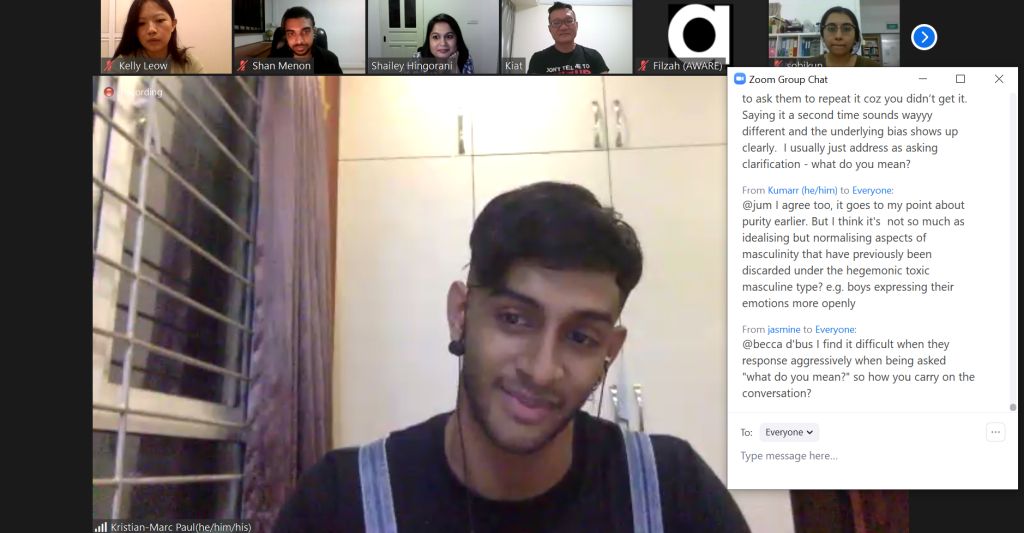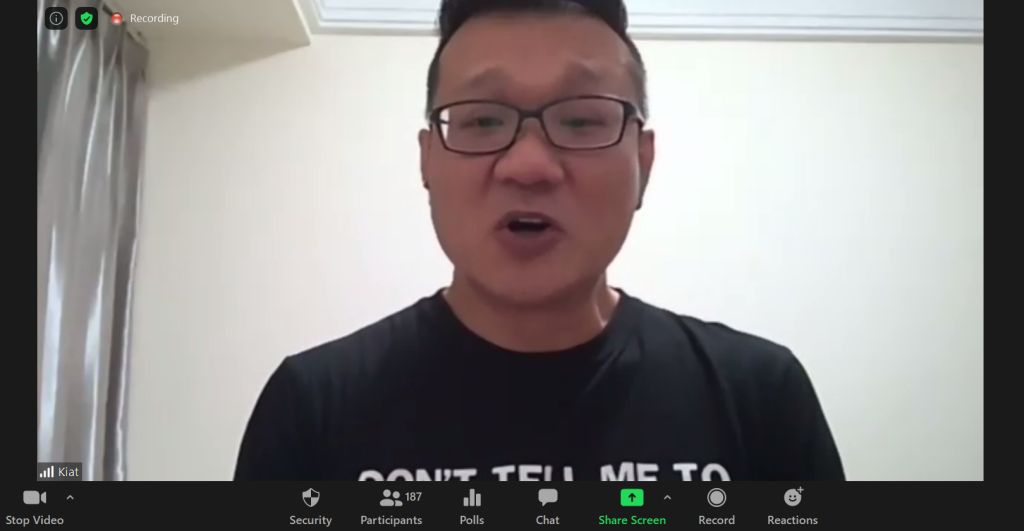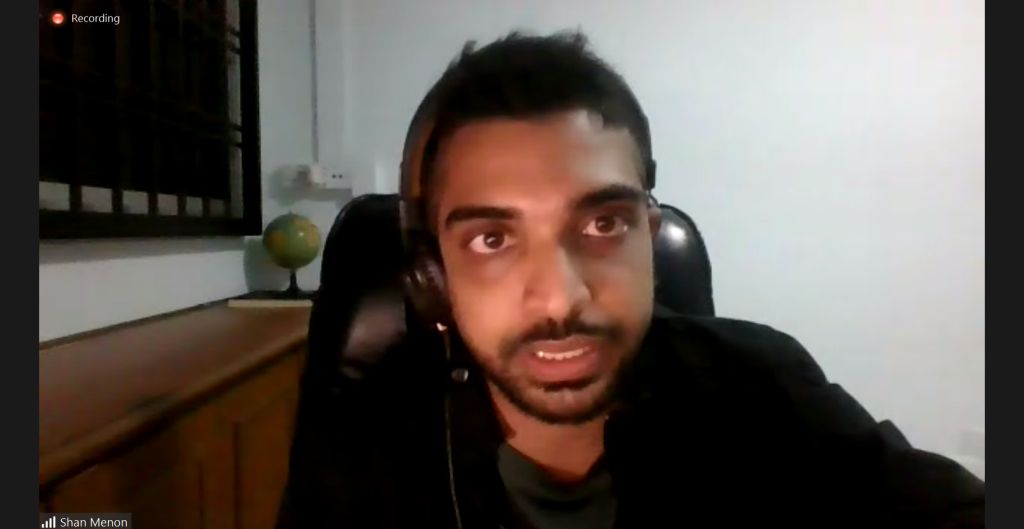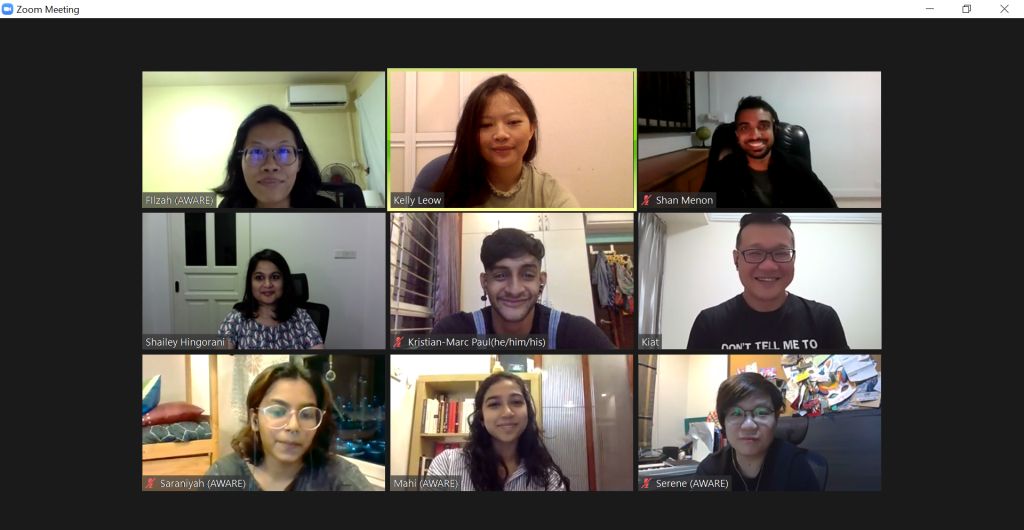-
Advocacy Theme
-
Tags
- Abortion
- Adoption
- Caregiving
- CEDAW
- Disability
- Domestic Violence
- Domestic Workers
- Harassment
- Healthcare
- Housing
- International/Regional Work
- Maintenance
- Media
- Migrant Spouses
- Migrant Workers
- Muslim Law
- National budget
- Parental Leave
- Parenthood
- Polygamy
- Population
- Race and religion
- Sexual Violence
- Sexuality Education
- Single Parents
- Social Support
- Sterilisation
- Women's Charter
A Recap: Good boys, softbois, sammyboys, boys will be boys – learning and unlearning toxic masculinity
August 20th, 2020 | Gender-based Violence, News
Written by Mahi Nair, AWARE intern
On 21 July, AWARE held a virtual panel discussion entitled “Good boys, softbois, sammyboys, boys will be boys: learning and unlearning toxic masculinity”. Almost 200 attendees joined in for the talk, with speakers Keeshan “Shan” Menon, a social worker and transgender activist; Kristian-Marc James, a Diversity and Inclusion programme coordinator and member of SG Climate Rally; and Tan Wah Kiat, long-time AWARE member and chairperson of the 2006 White Ribbon Campaign.
Moderated by AWARE’s Head of Research and Advocacy, Shailey Hingorani, the discussion covered what it means to be a man today, navigating different types of masculinities. It shed light on the different means by which masculinity affects the way men and women alike behave and are treated by others—in their personal lives, workplaces and other spaces.
Shailey began by bringing up the concept of “hegemonic masculinity”: the culturally dominant ideals of masculinity, centred around authority, physical toughness and strength, heterosexuality and paid work. This is an ideal of masculinity that many men struggle to live up to, and from which many others gain advantage.
Panellists quickly debunked the idea that there is only one correct way to be a man. Instead, all of them pushed for a more fluid understanding of society, stereotypes and gender representation.

Kristian spoke about physicality in gender representation, touching upon the idea of being “male-passing” or “straight-passing”. He observed that conforming to the standards of typical male physicality allows him to navigate some spaces with less vulnerability than a man who presented differently on the outside. (However, Kristian also recognised that other aspects of his identity, such as his ethnicity, might disadvantage him in other ways within the Singapore context.)
Similarly, Shan explained that in his experience with social work, being a man is an automatic “entry” to communicating well with male clients. A female social worker, he reflected, might not be able to build rapport with a male client as easily as he could, as a “bro”. Shan uses this advantage to build relationships with male offenders, so as to provide them better services.
Wah Kiat recalled an old Mandarin adage (“男人流血不流泪”, roughly translating to “men bleed, not cry”) when he described his traditional upbringing—as a child, his father encouraged him to be unemotional and stoic. After becoming a feminist and AWARE member in his adult life, Kiat realised that suppressing his emotions in this manner was only harming himself. Reflecting on other experiences with gender inequality, Kiat also touched on the systemic devaluing of female workers, recalling when he realised that he might be earning more than a woman for performing the same job.

In the chat box, audience members kept up a running discussion that paralleled and complemented the panellists’. Some lamented on how, despite becoming more aware of the detrimental effects of toxic masculinity, society largely continues to embrace it (e.g. by praising men who play traditionally masculine sports or activities, or who are sexually dominant).
This led to a question posed by Shailey to both the panelists and the attendees: In a society so overwhelmingly rooted in the patriarchy, how do we even begin to reject toxic masculinity?
The panellists suggested that individual actions can have an effect on society, ranging from small acts like “calling out” harmful behaviour from male friends, to larger advocacy or activism work that dismantles gendered structures. The first step is acknowledging that these systems are obsolete and need to change.
In the chat, an attendee also raised an important point about reexamining the ways parents raise sons differently than daughters.

Unlearning toxic masculinity might seem like an uphill battle, but this event showed that there are many passionate voices ready to make a difference. Having conversations like these is a good way to start. And notable wins—such as the increased number of women in Parliament after the recent General Election—can keep the momentum going.
Following this event, we are inviting members of the public to join a collective of individuals working on issues of masculinity. To be added to the group, please fill up this form.




